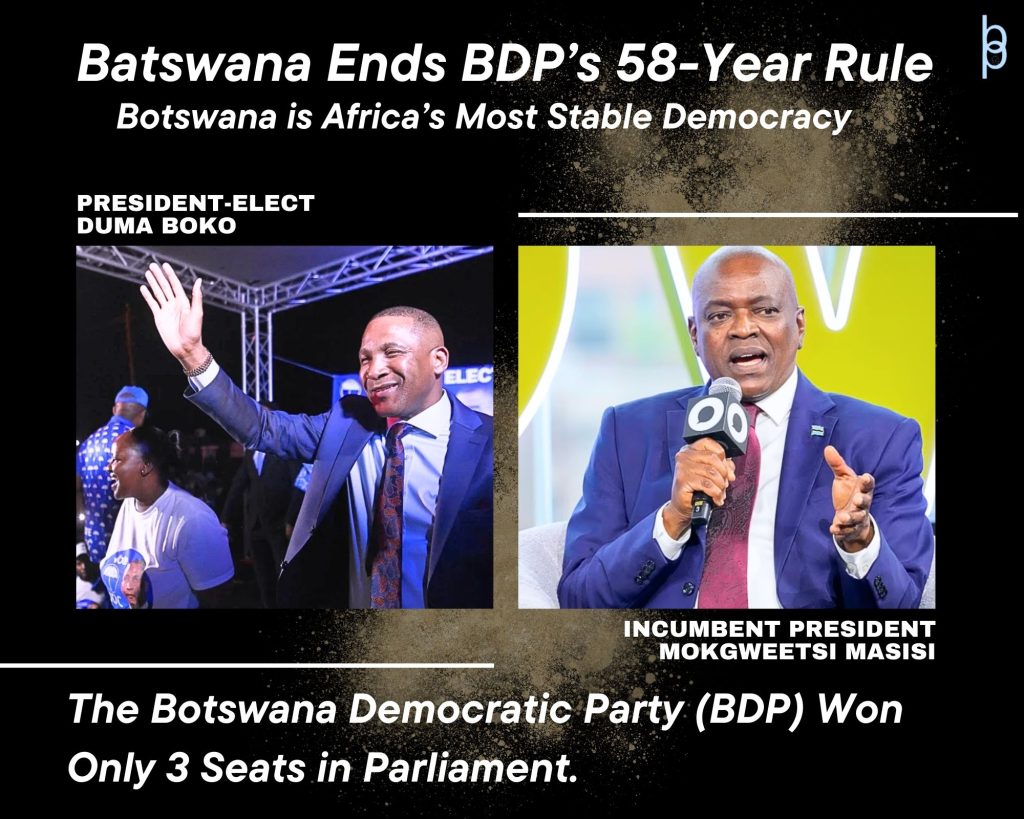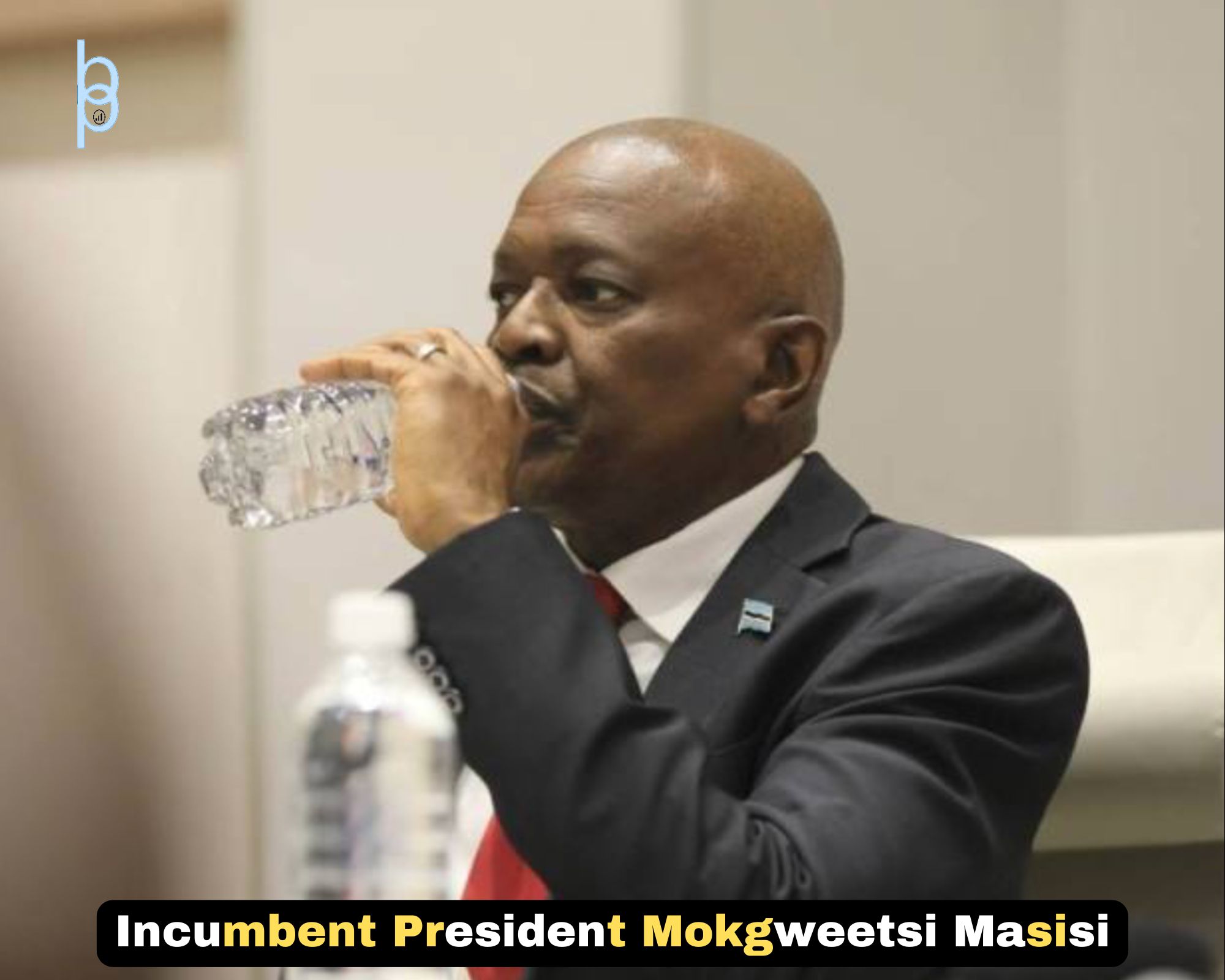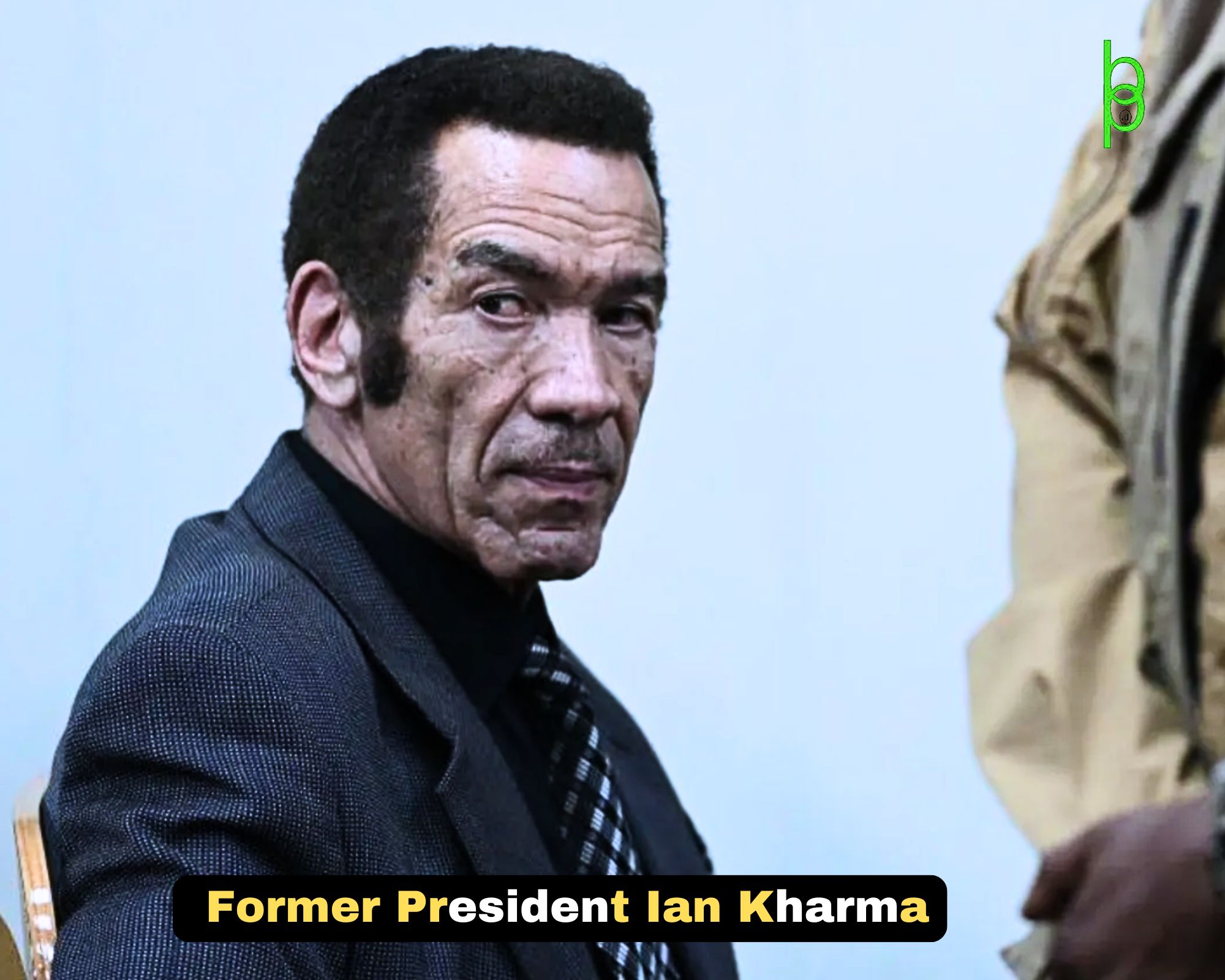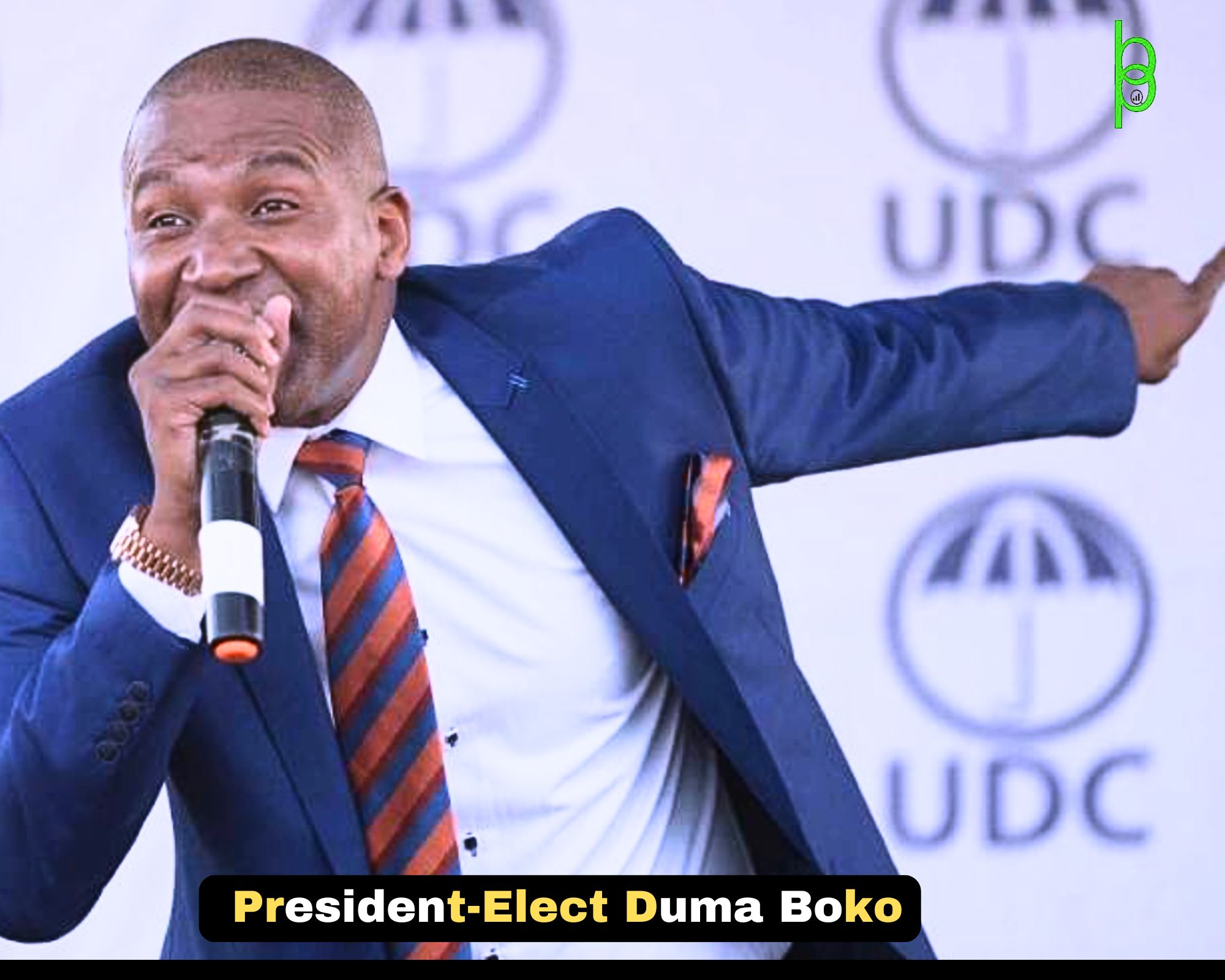
Batswana Ends 58-Year Democratic One-Party Rule
Gaborone, Botswana: On the 1st of Nov, 2024, President Mokgweetsi Masisi of Botswana conceded defeat in the recent election. Despite the prevalence of autocratic governments, dictatorships, and corruption across Africa, some African countries demonstrate higher levels of democracy and transparency. Among these, Southern Africa stands out, with nations like South Africa, Namibia, and Botswana showcasing the principle of one person, one vote.

Botswana gained independence from Britain on the 30th of Sept, 1966, and since then, the Botswana Democratic Party (BDP) has ruled the country democratically. Ian Khama, the former president, was born in the United Kingdom to a British mother and a Motswana father. He governed for ten years before handing the presidency to his hand-picked successor, Mokgweetsi Masisi, who later brought charges against Khama. Following a self-imposed exile, Khama returned to face trial and has remained popular, vowing to campaign vigorously against Masisi. Has Khama’s influence cast a shadow over Masisi?

The defeat of the BDP was substantial; it was not a narrow loss but a decisive rejection. President Masisi, overly confident in the BDP’s 58-year history of electoral victories, did not anticipate the outcome. Over 75% of Batswana have only known BDP rules. The 30th of Oct 2024 general election was similar to the US presidential election 2016 that brought Donald Trump to the forefront. The BDP’s neglect of young people, many of whom are jobless or underemployed, contributed to its downfall. Botswana’s heavy reliance on diamonds has hindered growth in other critical sectors. Despite its mineral wealth and a population of fewer than three million, many people live in poverty.
Like much of Africa, over 70% of Botswana’s population is under 25 and struggles with underemployment or unemployment or relies on government assistance. They turned out in significant numbers to deliver an unequivocal message to the BDP: “We have had enough; it is time to go!” In the 69-member parliament, the BDP secured only three seats, while opposition parties claimed the remaining 66. The Umbrella for Democratic Change (UDC), led by human rights lawyer Duma Boko, won 25 seats. Boko, who holds a Master of Laws degree from Harvard Law School and has a long history in opposition, is now the president-elect of Botswana.

In a hallmark of democratic tradition, President Masisi has conceded defeat without bloodshed, violence, or election rigging—demonstrating Botswana’s status as a pride of Africa; unlike Nigeria, where ethnocentric sentiments often taint elections, such tensions have no place in Botswana despite its diverse population. Masisi stated he called Duma Boko to congratulate him on his victory. He added:
“I will hand over all outstanding government matters to the new president so he may address them after his inauguration. I will continue to serve my beloved Botswana’s interests within our constitution’s parameters. I promise to do my part to build a strong country from within and work with the new administration to ensure every citizen has opportunities at their fingertips. I look forward to attending the inauguration.”
This reflects democracy at its finest. As Batswana move forward without the BDP, we hope the UDC will deliver what the BDP could not provide over nearly six decades. While making promises as an opposition party is easier, the governance challenges can be significantly more complex. Nonetheless, Botswana remains a stable democracy with peace-loving people, potentially Africa’s finest.
We eagerly anticipate President-elect Duma Boko’s leadership and will continue reporting on Botswana developments.
By Ikechukwu ORJI





